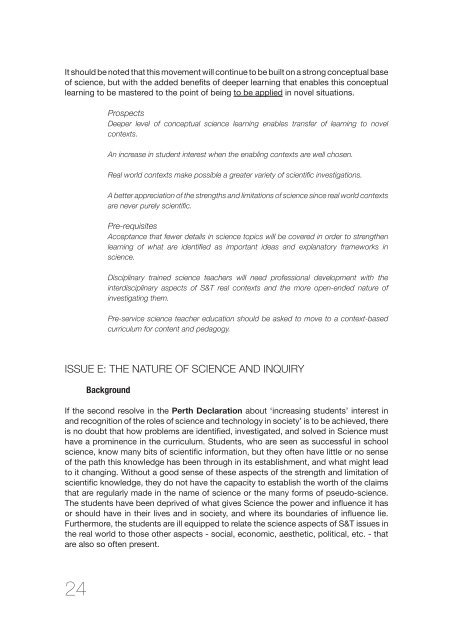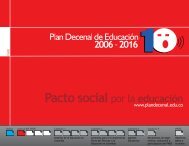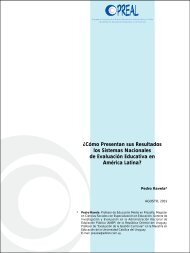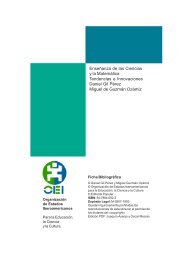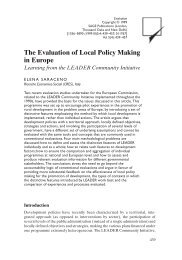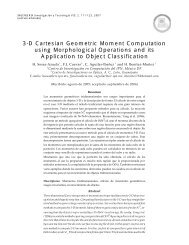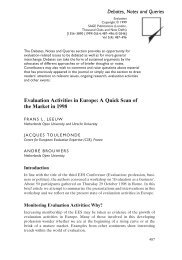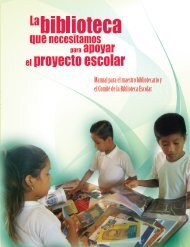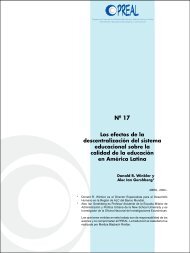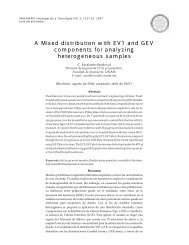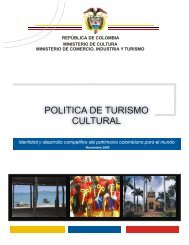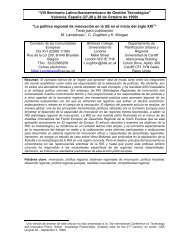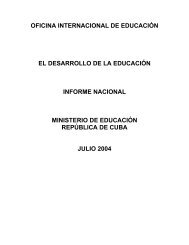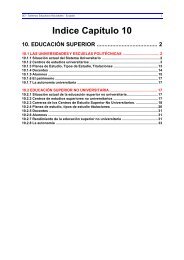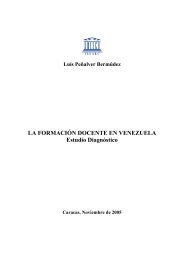Science education policy-making: eleven emerging issues; 2008 - OEI
Science education policy-making: eleven emerging issues; 2008 - OEI
Science education policy-making: eleven emerging issues; 2008 - OEI
You also want an ePaper? Increase the reach of your titles
YUMPU automatically turns print PDFs into web optimized ePapers that Google loves.
It should be noted that this movement will continue to be built on a strong conceptual base<br />
of science, but with the added benefits of deeper learning that enables this conceptual<br />
learning to be mastered to the point of being to be applied in novel situations.<br />
Prospects<br />
Deeper level of conceptual science learning enables transfer of learning to novel<br />
contexts.<br />
An increase in student interest when the enabling contexts are well chosen.<br />
Real world contexts make possible a greater variety of scientifi c investigations.<br />
A better appreciation of the strengths and limitations of science since real world contexts<br />
are never purely scientifi c.<br />
Pre-requisites<br />
Acceptance that fewer details in science topics will be covered in order to strengthen<br />
learning of what are identifi ed as important ideas and explanatory frameworks in<br />
science.<br />
Disciplinary trained science teachers will need professional development with the<br />
interdisciplinary aspects of S&T real contexts and the more open-ended nature of<br />
investigating them.<br />
Pre-service science teacher <strong>education</strong> should be asked to move to a context-based<br />
curriculum for content and pedagogy.<br />
ISSUE E: THE NATURE OF SCIENCE AND INQUIRY<br />
Background<br />
If the second resolve in the Perth Declaration about ‘increasing students’ interest in<br />
and recognition of the roles of science and technology in society’ is to be achieved, there<br />
is no doubt that how problems are identified, investigated, and solved in <strong>Science</strong> must<br />
have a prominence in the curriculum. Students, who are seen as successful in school<br />
science, know many bits of scientific information, but they often have little or no sense<br />
of the path this knowledge has been through in its establishment, and what might lead<br />
to it changing. Without a good sense of these aspects of the strength and limitation of<br />
scientific knowledge, they do not have the capacity to establish the worth of the claims<br />
that are regularly made in the name of science or the many forms of pseudo-science.<br />
The students have been deprived of what gives <strong>Science</strong> the power and influence it has<br />
or should have in their lives and in society, and where its boundaries of influence lie.<br />
Furthermore, the students are ill equipped to relate the science aspects of S&T <strong>issues</strong> in<br />
the real world to those other aspects - social, economic, aesthetic, political, etc. - that<br />
are also so often present.<br />
24


